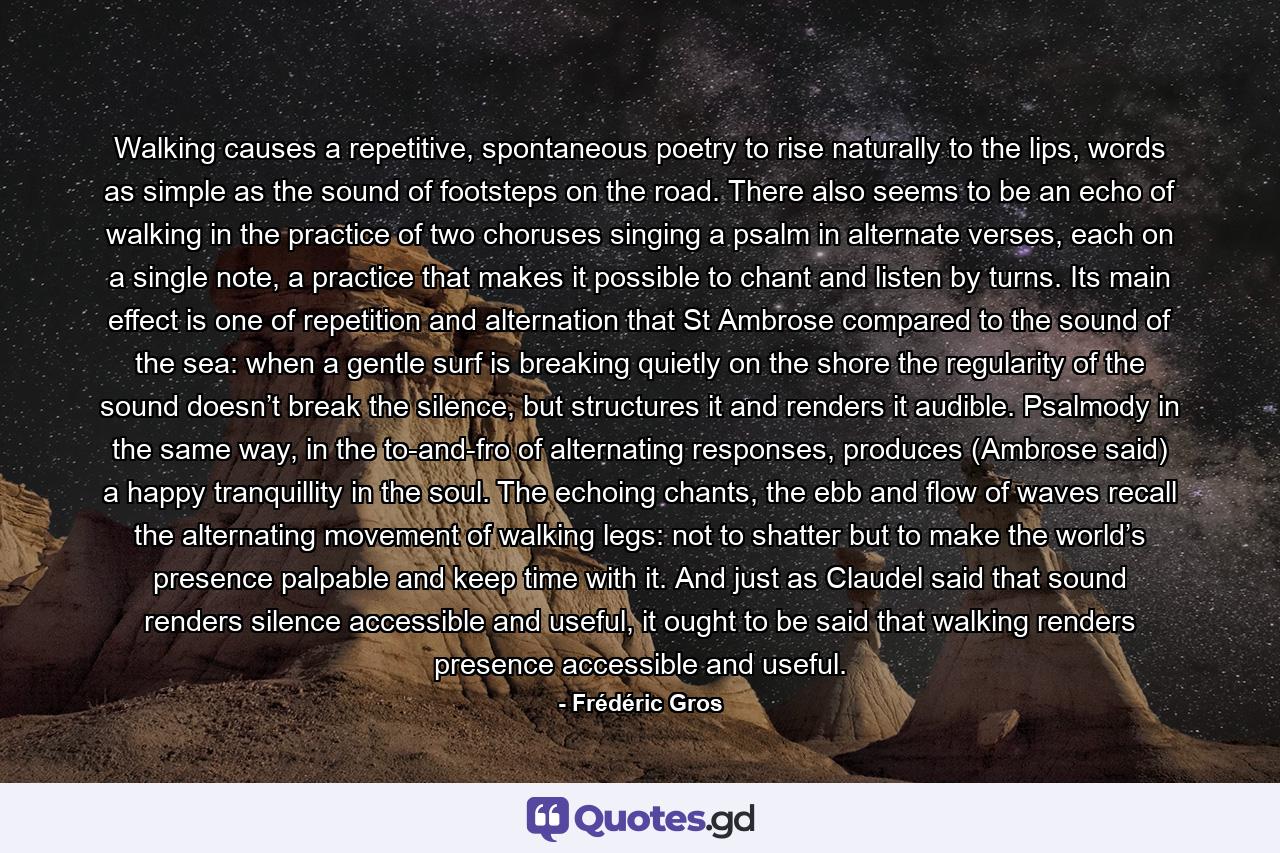Walking causes a repetitive, spontaneous poetry to rise naturally to the lips, words as simple as the sound of footsteps on the road. There also seems to be an echo of walking in the practice of two choruses singing a psalm in alternate verses, each on a single note, a practice that makes it possible to chant and listen by turns. Its main effect is one of repetition and alternation that St Ambrose compared to the sound of the sea: when a gentle surf is breaking quietly on the shore the regularity of the sound doesn’t break the silence, but structures it and renders it audible. Psalmody in the same way, in the to-and-fro of alternating responses, produces (Ambrose said) a happy tranquillity in the soul. The echoing chants, the ebb and flow of waves recall the alternating movement of walking legs: not to shatter but to make the world’s presence palpable and keep time with it. And just as Claudel said that sound renders silence accessible and useful, it ought to be said that walking renders presence accessible and useful.
